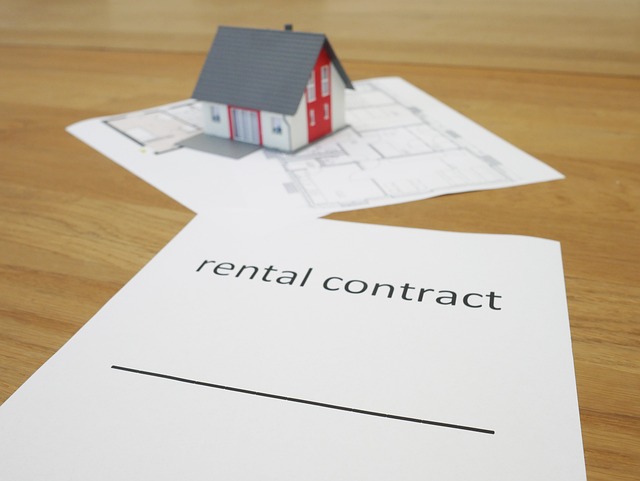Cross-Border Property Buying: Legal Steps for Global Buyers
Buying property across borders requires careful legal planning, clear documentation, and an understanding of local market rules. Global buyers must evaluate title, taxes, financing options, and regulatory constraints early in the process to avoid costly delays. This overview highlights essential legal steps to prepare international property purchases and reduce risk from offer to closing.

Buying property in another country involves legal, financial and practical steps that differ from domestic homebuying. Before making offers or arranging financing, international buyers should map out the regulatory landscape, understand ownership rules, and secure trusted local advice. Early diligence reduces the chance of unexpected liabilities related to zoning, taxation, or title disputes, and helps align a purchase with long-term investment, relocation, or rental objectives.
Property: What initial legal checks are essential?
When evaluating a prospective property, verify ownership, encumbrances, and permitted uses through official land registries and public records. Confirm any title deeds, historical transfers, and whether third-party rights—such as easements or liens—exist. Many jurisdictions require notarized translations of documents and apostilles for foreign buyers; working with a local attorney can ensure documents meet formal requirements. Also check zoning rules, permitted construction, and local restrictions that might limit renovations, rental activity, or future subdivision. These checks protect against disputes and ensure the property aligns with your intended use.
Mortgage: How to arrange cross-border financing?
Securing a mortgage as a global buyer often involves higher down payments and different eligibility criteria than in a buyer’s home country. Determine whether local banks lend to nonresidents, whether foreign-currency loans are available, and what proof of income or credit history is acceptable. Consider lender requirements such as property valuation, insurance, and local tax compliance. Speak to international mortgage brokers and compare terms, including interest rates, fees, and early repayment penalties. If domestic financing is unavailable, alternatives include financing through international banks, developer financing, or cash purchases with third-party bridging loans.
Investment: What legal frameworks affect property investment?
Cross-border investment requires understanding real property rights, foreign ownership limits, and any registration or reporting obligations for investors. Some countries impose restrictions on foreign land ownership or require special permits for nonresidents. Review rules for rental income, capital controls, and the process for repatriating rental proceeds or sale proceeds. Local corporate structures, such as holding companies, trusts, or special-purpose vehicles, may offer protection and tax efficiency but introduce additional compliance and reporting obligations. Legal advice can help structure purchases to meet investment and estate-planning goals while remaining compliant.
Valuation: How to verify market value and appraisal rules?
Obtain a professional valuation or appraisal from a locally licensed valuer to establish fair market value and support mortgage applications. Appraisal standards vary, so confirm the methodology used and whether the report meets lender requirements. Consider multiple perspectives: recent comparable sales, replacement cost, and income capitalization for rental properties. Be aware of potential conflicts of interest in markets with limited transparency—use reputable firms and seek independent second opinions when needed. Accurate valuation also informs negotiation strategy and tax reporting obligations.
Inspection: What standards and reports are required?
Inspections should cover structural, environmental, and systems-level issues and reflect local standards for building safety and habitability. Engage qualified inspectors who can produce detailed reports on foundations, roofing, electrical systems, plumbing, pests, and any environmental hazards like flooding risk or soil contamination. If purchasing older properties, request maintenance records and permits for past works. For new developments, confirm completion certificates and builder guarantees. Inspection findings can justify price adjustments, remediation conditions in contracts, or walk-away decisions in jurisdictions with limited consumer protections.
Taxation: How do taxes and compliance differ internationally?
Understand all tax implications, including transfer taxes, stamp duties, annual property taxes, rental income taxes, and capital gains taxes on sale. Double taxation treaties may affect liabilities, but reporting obligations can still apply in both the country of the property and the buyer’s home jurisdiction. Some countries require tax registration before acquisition or impose withholding on sales to nonresidents. Seek guidance from cross-border tax advisors to estimate ongoing costs and ensure compliance with filing deadlines. Proper planning can minimize surprises and align the purchase with broader financial objectives.
In summary, cross-border property buying demands thorough legal due diligence across title, financing, valuation, inspection, and tax compliance. Local counsel and qualified advisors—lawyers, tax professionals, lenders, valuers, and inspectors—play a critical role in translating local rules into actionable steps. By compiling complete documentation, verifying regulatory constraints, and confirming financial arrangements, international buyers can manage risk and proceed with clarity toward ownership, rental, or relocation plans.






